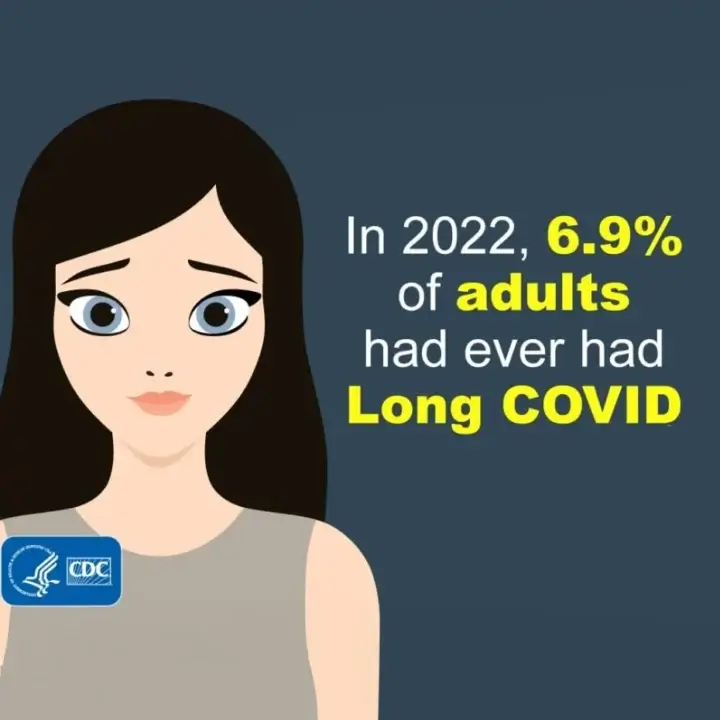— Researched and written by Dr. Sandip Roy.
What’s it like to spend your waking hours in a mental haze? Brain fog sufferers know the frustration.
They seek answers to two vital questions: How long would their brain fog last? Do natural remedies and experimental medicines help?
Brain fog is not a scientific term, but this informal phrase describes it well. It’s a constant state of undecidability, lack of focus, memory problems, confusion, dizziness, and mental fatigue.
Often, it comes with physical tiredness and vague muscle pains, which makes the person feel less capable of doing most things.
Takeaways:
- Replace alcohol, tobacco, and late nights (things hurting your brain and nerve recovery) with exercise, deep breathing, and 8 hours of sleep each night.
- Seek online opinions from brain-fog experts in other countries if you find no relief with treatment from your local doctor.
- Study the latest research on brain fog, and try novel ways (under medical supervision) to clear your brain fog.

Table of Contents
What is Brain Fog?
“Brain fog” is a term collectively referring to symptoms including a state of confusion, persistent cognitive and attention deficits, and consistent impairment of executive functioning, language, processing speed, and working memory.
More simply, brain fog is a condition that makes it difficult for you to think or remember clearly, make decisions rapidly, and find the words you want to express while speaking or writing.
The sufferer is frustrated at their inability to perform at their peak, feels exhausted after a little exertion, and slows down as the day progresses.
How Long Does Brain Fog Last?
Research suggests that how long brain fog lasts depends on whether it is acute or chronic.
Acute Brain Fog: Days to Weeks
Acute brain fog is typically caused by a short-term illness or injury, such as:
- a vasovagal syncope (sudden fainting due to low blood supply to the brain),
- a concussion (a hit on the head), or
- an infection involving the brain.
It usually lasts for a few days to a few weeks, though can take shorter or longer depending on the exact cause and personal factors.
Chronic Brain Fog: Months to Years
Chronic brain fog is a long-term condition that is most notoriously caused by long-term Covid. Other causes are chronic fatigue syndrome (CFS), fibromyalgia, depression, or anxiety.
The duration of chronic brain fog can last for months or even years in some cases.
How Long Does Brain Fog Last After Covid?
Covid survivors have said it took them months to years to get over their brain fog:
- The vast majority of patients with post-COVID-19 brain fog recover completely over 6 to 9 months.
- A small segment of patients of all ages experience brain fog persistently for up to 2 years.
Brain fog is a common symptom of long COVID.
Long COVID is defined as the persistence of physical and/or psychological symptoms for more than 4 weeks after recovery from acute COVID-19 disease. Women, older people, and active smokers were found to have a higher risk of developing “long COVID” syndrome.
Over 5,000 Americans have died from long-COVID, reports new CDC data (Source: Long COVID Has Caused Thousands of US Deaths: New CDC Data, Medscape).
- About 4.5% of Covid patients experience brain fog at 2 months.
- Almost 50% of long COVID patients report either poor memory or brain fog.
- Patients often report brain fog, poor memory, dizziness, depressed mood, anxious mood, and sleep disruption.
However, Covid-related brain fog is difficult to diagnose (Venkataramani & Winkler,2022)

Studies on Long-Covid And Brain Fog
- This study (Brain Fog in Adults Reporting Long COVID Symptoms, Jennings & Monaghan, 2022) suggests the best independent associations with brain fog in COVID were subjective memory impairment, word-finding difficulties, higher fatigue levels, non-orthostatic dizziness, and myalgia.
- This study by Perlis & Santillana found that brain fog or poor memory was reported by 48.7% of individuals with long COVID, 36.3% of individuals with acute COVID-19, and 45.7% of all survey participants. It also found that “brain fog” was the third most commonly reported symptom among survey participants, with 40.4% of individuals reporting this symptom.
- While there are no specific biomarkers, there are some common findings among patients who have long COVID.: brain scans often indicate lowered metabolism in the olfactory bulb, cerebellum, and brain stem; inflammatory markers, such as C-reactive protein and D-dimer, are typically elevated in patients who were hospitalized for COVID-19.
- A study by Fernández-Castañeda et al. found that mild respiratory SARS-CoV-2 infection can lead to neuroinflammation and subsequent brain damage, mediated by CCL11-induced microglial activation and inhibition of neurogenesis.

Non-Medical Treatments To Clear Brain Fog
Brain fog is a debilitating condition that, unfortunately, has no magic cure.
Here are some natural and nonmedical ways to help reduce and recover from brain fog:
- Stop Smoking: Tobacco products (and other ingredients in the smoke) narrow the blood vessels in the brain, reducing circulation, which may obstruct flushing out of the viral toxins causing brain inflammation. Studies indicate that non-smokers have a significantly higher chance of achieving full recovery from brain fog as compared to smokers (Bai, Tomasoni, Falcinella, et al., 2022).
- Limit Alcohol Intake: Regular alcohol consumption can slow down recovery, and even increase brain fog because of interference with neurotransmitters, decreased oxygen flow to the brain, increased inflammation, and memory loss. Stop alcohol consumption.
- Regular Exercise: Regular physical activities can boost blood circulation, which can then promote brain healing and help alleviate brain fog symptoms. Try non-strenuous activities like daily walks around the house.
- Adopt a Healthy Diet: Consuming processed foods, fast food, and sugary treats can induce inflammation in the body, which works against the healing process. Opting for a balanced diet rich in fruits, vegetables, lean proteins, and whole grains can support better healing.
- Take vitamin D Supplements: Vitamin B-12 deficiency is associated with cognitive impairment in older people. It is believed that a daily supplement of 1000 or 2000 IU of vitamin D can support recovery from brain fog and cognitive decline, though there is limited evidence to support this.
- Mental Stimulation: Mind exercises, such as crossword puzzles, Sudoku, card games, or reading diverse materials, can enhance cognitive function. These activities stimulate the brain, helping to keep it active and potentially alleviating brain fog.
- Adequate Sleep: Sufficient sleep is one of the most effective natural ways to reduce brain fog. Strive for 7–9 hours of sleep per night, and maintain a consistent sleep schedule. Consistent lack of sleep decreases the brain’s ability to solidify memory and clear out toxins, as well as lowers our ability for higher cognitive functions, such as basic multitasking.
- Healthy Diet: Avoid processed foods and incorporate Omega-3 fatty acids, found in fish and nuts, in your diet. Research suggests regularly eating nuts can reduce brain fog. This study revealed that English walnuts “reduce the oxidant and inflammatory load on brain cells” and improve the transmission of neural messages in the brain, as well as help remove toxic proteins.
- Stress Reduction: High stress can negatively impact brain function. Try mindfulness meditation, deep breathing exercises, and yoga can help you relax and unwind, potentially reducing brain fog.
- Hydration: Stay adequately hydrated to get over brain fog. Studies show that even mild dehydration, such as the loss of 1-3% of body weight, can impair many aspects of brain function. Whereas, water consumption can improve cognitive performance, particularly visual attention and mood (Masento & Golightly, 2014).

Medical Treatments for Brain Fog
If you are experiencing acute brain fog, consult a doctor asap. If you can’t go to a doctor, ask someone to take you to a hospital.
Meanwhile, lie down and take some rest, stay hydrated, and avoid activities that require a lot of mental or physical exertion. And call someone to be by your side.
The three mainstays of treating brain fog are:
- cognitive rehabilitation,
- physical therapy, and
- psychological support.
The medical treatment for brain fog includes:
- Consultation with a Doctor: Brain fog can be debilitating, but there are no universally approved treatments. Your doctor may prescribe medications, such as stimulants or antidepressants, to alleviate your symptoms, enhance brain function, and speed up your recovery.
- Cognitive-Behavioral Therapy (CBT): CBT can help identify and alter negative thought patterns contributing to brain fog, potentially reducing its impact.
- Address Underlying Conditions: If there is an underlying medical issue causing brain fog, treating that condition may help treat the brain fog. For example, if one has hypothyroidism, taking medicine to manage this condition can help enhance cognitive functioning and reduce brain fog.
Some experimental, research-based treatments:
- “Long‐COVID syndrome‐associated brain fog and chemofog: Luteolin to the rescue”.
- “Breathlessness and exercise with virtual reality system in long-post-coronavirus disease 2019 patients”.
- “Effect of Repetitive Transcranial Magnetic Stimulation on Long Coronavirus Disease 2019 with Fatigue and Cognitive Dysfunction”.
Mindfulness And Brain Fog
Mindfulness meditation can help reduce brain fog by bringing us to the present moment and teaching us how to observe the fluctuations of the mind without emotionally engaging in them.
- Mindfulness meditation can help reduce stress and anxiety, which can contribute to brain fog.
- Mindful breathing can help quiet the noise in our minds, allowing us to filter through distractions and regain mental clarity. It also helps our lungs absorb more oxygen into the bloodstream.
- Activities like mindful yoga and mindful walking can help you distract from over-focusing on your problems. It helps you recognize the best methods available to you and take steps on them, learn your limits, and stop ruminating.
FAQs
How long does brain fog last after drinking?
Brain fog can be a persistent symptom of alcohol consumption, and it can last for several months or even years after initial consumption. The symptoms that are caused by a hangover usually lessen within 8 to 24 hours.
How long does brain fog last after quitting alcohol?
When chronic alcohol consumers stop drinking, gray matter shrinkage in the brain begins to reverse within two weeks. Most alcohol quitters find that they are thinking much better within the first week, and their ability to think clearly improves as they make their way through the detox process.
How long does brain fog last after eating gluten?
It takes approximately 48 hours on average for brain fog symptoms to resolve after accidentally eating gluten. This study found that neurological symptoms are common in non-celiac gluten sensitivity (NCGS). The most common neurological symptoms were headaches, brain fog, balance issues, and tingling. The onset time of these symptoms was similar to that in celiac disease, with symptoms typically resolving within 48 hours.
How long does brain fog last after a brain stroke?
Poststroke acute dysexecutive syndrome (PSADES) is a complex disorder that is not fully understood. This study found that stroke survivors took longer to complete cognitive tasks. The researchers suggested that the cognitive difficulties experienced by stroke survivors are not simply due to a lack of brain activity, but also to a disruption in the way that the brain processes information.
How long does brain fog last after anesthesia?
Brain fog after anesthesia can last for some days or a couple of weeks.
Final Words
There is no quick cure for brain fog. Plus, everyone experiences it differently, so what works for others may not work for you.
I wish for you a clear mind because a clear mind makes for a clear life.
√ Also Read:
- 10 Easy Ways To Refresh Your Mind & Reboot The Brain
- Do Nootropics/Brain-Boosters Work (Types, Safety, Effects)
- Foods & Exercises To Improve Brain Function & Mental Fitness
√ Please spread the word if you found this helpful.
• Our Story!